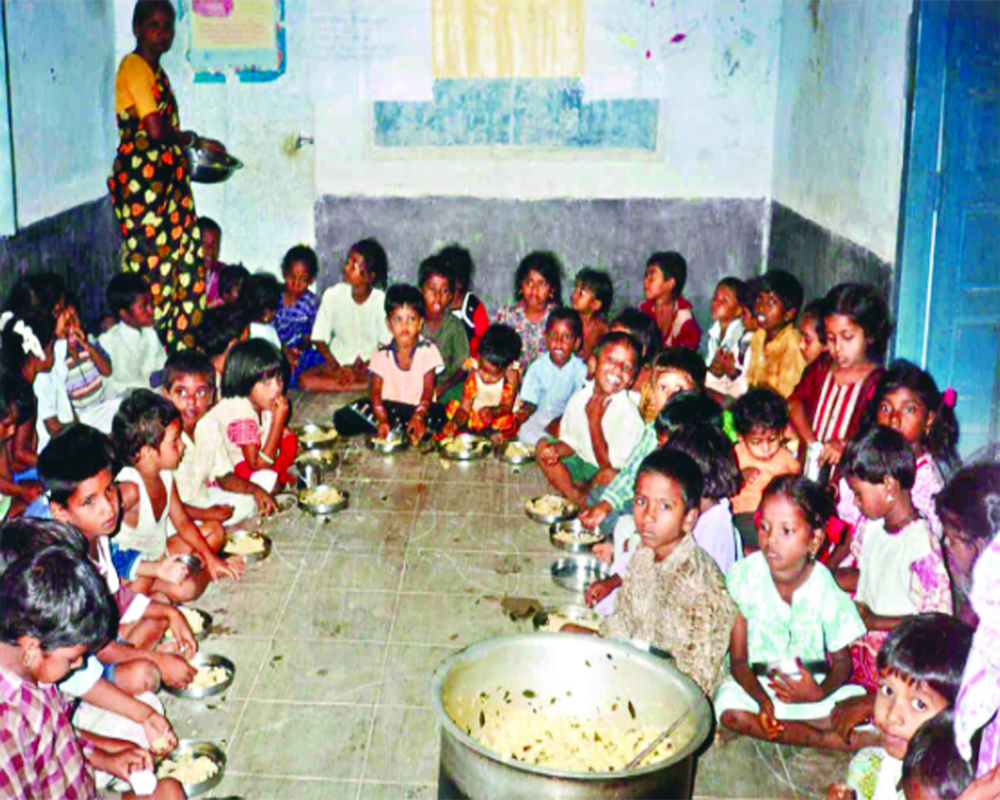Early care and education play a pivotal role in deciding the learning trajectory of a child
The brain develops rapidly prior to the age six and it is our environment and experiences that shape the quality of its development. Nutrition and good health, safety, opportunities for early learning and child interactions enhance it. They create a strong foundation for future development of young children. Thus, early childhood care and education plays a pivotal role in deciding the future learning trajectory of a child. It is important to expose young children to flexible, multi-faceted, multi-level, play-based, activity-based, and inquiry-based learning. The National Education Policy 2020 also highlights the criticality of foundational learning and its future impact. Almost 3.46 crore children in the 3-6 age group are enrolled in 13.87 lakh Anganwadis. There are also 1.98 lakh Government and Government-aided schools with pre-primary sections. Around 1.25 crores children are enrolled in these and private unaided schools. Further, the gross enrolment ratio (GER) at primary level was 102.7 per cent in 2019-20 which indicates that nearly all children at the primary level are enrolled in schools. For optimal use of existing systems and resources, NCERT is preparing a National Curriculum Framework for Early Childhood Care and Education (NCFECCE) focusing on the 3-8 age group. Play and Activity based learning is going to be integral part of NCFECCE. The framework will provide sufficient flexibility to incorporate local culture, traditions, stories and indigenous toys so that children, parents, teachers and Anganwadi workers can easily relate to it. NCFECCE will be followed by both Anganwadis and Pre-primary schools to ensure smooth transition to grade I. It is in this context, Samagra Shiksha, an integrated scheme for school education, has been synchronised with the recommendation of the NEP 2020 so that the lofty vision of the policy can be translated at the grassroot level. The Nipun Bharat initiative launched under the aegis of Samagra Shiksha attempts to provide an all-inclusive approach for children of the 3-9 age group. The vision of the Mission is to create an enabling environment to ensure universal acquisition of foundational literacy and numeracy, so that by 2026-27 every child achieves the desired learning competencies in reading, writing and numeracy at the end of Grade III. Further, to ensure that all students are school ready, a 3-month play-based school preparation module called ‘Vidya Pravesh’ has been launched for all Grade 1 students, to augment their pre-literacy & numeracy, cognitive and social skills. NCERT has designed a programme under NISHTHA to prepare 25 lakh teachers for embracing experiential learning in classrooms through art, stories, local toys, poems and activities in mother tongue. Nipun Bharat's most prominent feature is its focus on innovative pedagogies and standardised capacity building of teachers so that teaching promotes inquisitiveness, imagination, and understanding of the concept rather than rote memorisation. With foundational stage learners, teachers need to focus on activities which interest them andchildren should also be encouraged to communicate in their home language. Therefore, teachers will have to learn to teach in many ways - through interaction, play-way methods, small group activities and hands-on learning activities.The activity and play based pedagogies also provide ample opportunities for parents to engage children in meaningful interactions. Parents can easily involve children in day-to-day activities that promote early language and numeracy, i.e., role play with children, clay modelling, making local toys, storytelling, singing local rhymes, talking about different shapes which are easily available at home, asking them to count the number of fruits or vegetables available at home. The NEP 2020 recommends a paradigm shift in the current education system and teachers by using innovative pedagogies to stimulate critical thinking, creativity and curiosity amongst the children shall play a vital role in the reformatory process.
(The writer is Director of School Education and Literacy, Ministry of Education, Government of India. The views expressed are personal.)


























